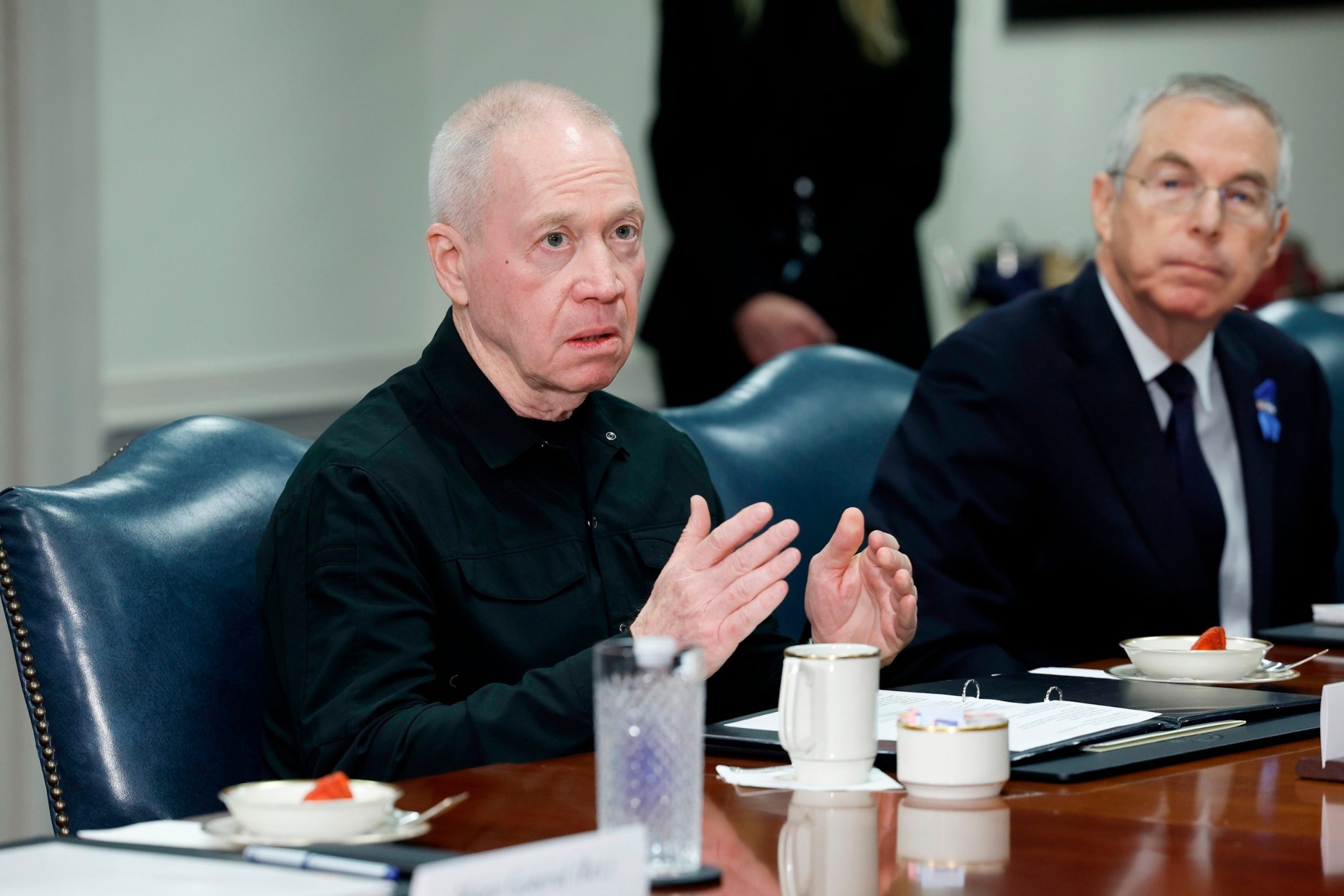Top U.S. defense officials convened with Israel’s Defense Minister, Yoav Gallant, amid warnings from the United States against a proposed ground invasion of Rafah in southern Gaza. The meeting highlighted the complex dynamics between the two nations, especially given the recent escalation in tensions.
During the Pentagon discussions, Defense Secretary Lloyd Austin expressed concerns over the high number of civilian casualties in Gaza and the insufficient delivery of aid, underscoring the importance of exploring alternative strategies to address Hamas in Rafah.
Austin affirmed Israel’s right to self-defense, with a commitment from the U.S. to support its ally. Gallant focused on the continuous threats faced by Israel, outlining the meeting’s agenda to cover strategies for neutralizing Hamas, securing the release of Israeli hostages, and facilitating the return of displaced citizens.

Israeli defense minister (Credits: ABC News)
Despite discussions in Congress about potentially conditioning military aid to Israel on humanitarian improvements, such suggestions were notably absent from the official talks.
The dialogue between U.S. and Israeli defense leaders occurs against a backdrop of growing tension and international concern over the humanitarian situation in Gaza.
This strain was further exemplified by Israeli Prime Minister Benjamin Netanyahu’s cancellation of a planned visit to Washington in response to a U.N. Security Council resolution calling for an immediate ceasefire, which the U.S. chose not to veto.
The U.S. has urged Israel to reconsider a ground invasion, suggesting alternative methods to combat Hamas that prioritize civilian safety. This recommendation draws on lessons from urban combat experiences, indicating possible strategies for mitigating civilian casualties while addressing the threat posed by Hamas.

Israel Defense Chief and Austin (Credits: The Times of Israel)
The conflict has had a devastating impact, with local health officials reporting over 32,000 Palestinian casualties and severe displacement within Gaza. Israel initiated the military offensive in response to a deadly attack by Hamas on October 7, which resulted in substantial loss of life and the taking of hostages.
Despite these developments, the U.N. Security Council’s resolution for a ceasefire during Ramadan has become a point of contention, with Netanyahu criticizing the U.S. for its perceived retreat from a steadfast stance, particularly concerning the conditionality of the ceasefire on the release of hostages.
This dispute highlights the growing complexities within the U.S.-Israel relationship amidst ongoing military actions in Gaza and the escalating humanitarian crisis.























